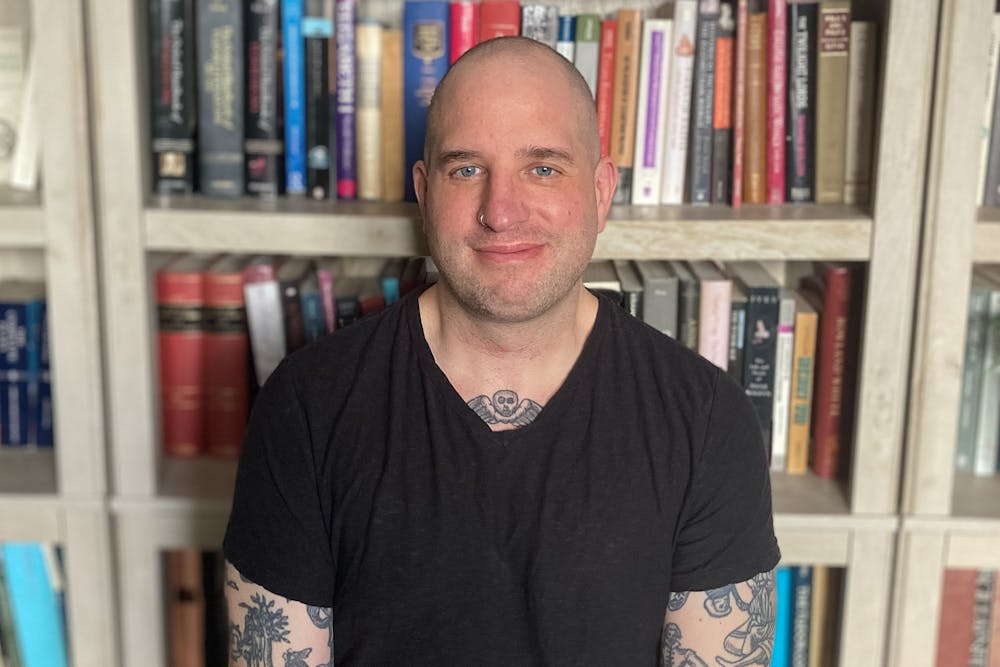Two years ago, Bradley Irish, associate English professor, began to take a closer look at his quirks and habits, his patterns of thinking that he always knew were different. During a therapy session, he made a passing joke that would lead to confirmation of a suspected truth.
"You know, sometimes I wonder if I'm on the autism spectrum," said Irish, recalling a conversation with his therapist.
His therapist then suggested he get formally tested. The evaluation confirmed his suspicions: he had autism and ADHD.
"My entire world has opened up since my diagnosis. I think it's probably pretty unusual that most people when they're around 40 have such a life-altering experience in a positive way," Irish said.
With this deeper sense of self-awareness, he approached his academic life with a new open perspective, which led him to write his recently published book "Literary Neurodiversity Studies: Current and Futures Directions."
"I've always been interested in psychology," Irish said. "It turned out when I discovered that I was autistic, it naturally made sense that my interest in how minds and emotions work would expand to think about neurodiversity more generally."
He describes his book as a brief introduction to how the concepts of neurodiversity can deepen people's understanding of literature. The book is meant to provide readers with the tools to understand how neurodiversity is represented in classic literature.
Irish noted that before writing the book, he had noticed there were scholars writing about neurodiversity in literature, but nobody had written a book addressing the overall field. His biggest challenge in writing his book was attempting to take all the research that had already been done and bring it all together.
One of his mentors was Sonya Loftis, a director and professor of English at Morehouse College, who also has autism. She shared that the field of literary neurodiversity was overlooked when she began working in it over 10 years ago.
"The work Dr. Irish is doing is the next generation of studies that I couldn't have imagined back then—he is working as part of an international network of neurodivergent scholars who are helping to make neurodiversity studies a field of its own," Loftis said in an email.
Jennifer Irish, associate professor of English and his wife shared that she is proud of her husband for taking these steps toward understanding himself.
"I was really proud of him because I do think all of us could benefit from working on ourselves and from asking for help in a number of different situations," she said.
She also believes there isn't enough accessible knowledge on how to support people on the spectrum, so she feels that her husband's work creates space for conversation.
"It attempts to show how having a sensitivity to the fact that people's minds work differently can help us understand things better about how literature is interpreted, how literature is made, how literature is analyzed," Irish said about his book.
Currently, Irish is co-writing a book about neurodiversity in early modern England. It will explore the concept of literary neurodiversity in the age of Shakespeare. He says it is expected to come out by the end of 2026.
Irish expressed how his personal discovery has not only impacted his ongoing academic pursuits but also provided him with a deeper understanding of himself.
"My life has entirely changed. I feel like I truly know who I am now, and I still have a lot to learn about my neurodivergence, my autism and my ADHD," Irish said.
Edited by Sophia Ramirez, Abigail Beck and Natalia Jarrett.
Reach the reporter at mmart533@asu.edu.
Like The State Press on Facebook and follow @statepress on X.
MJ is a freshman studying computer science and journalism and mass communication. This is her first semester with The State Press. She has also worked on her high school newspaper.




